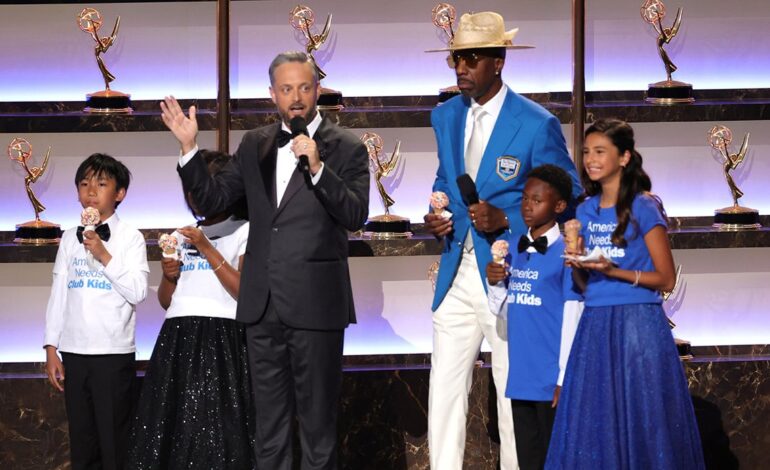Bargatze’s Emmy Gag Turns Generosity Into $350K Slam Dunk for Boys & Girls Clubs

The Emmy ceremony drifted into the realm of high-stakes humor when Nate Bargatze, the popular stand-up comic, devised an onstage stunt to prompt shorter speeches. The core of his bit was simple: for every second a winner spoke beyond a pre-agreed limit, a $1,000 deduction would be redirected toward a charitable pot intended to benefit the Boys & Girls Clubs of America. The stakes were publicly framed as a fun challenge meant to keep speeches tight and the night buzzing with energy. The broader setup was not just about entertainment; it was an artful push to channel celebrity generosity toward a cause that serves millions of young Americans.
And then the plot thickened in real time. Bargatze wasn’t joking about the charity angle. He teased a significant donation that would sweeten the deal. Onstage, he confirmed a commitment that would effectively reverse any potential shortfall created by long speeches, pledging to ensure the charity still came out ahead. It was a moment that stitched the entertainment world to a meaningful social outcome in a way that felt both theatrical and tangible. The publicly announced figures quickly became part of the night’s narrative: CBS stepped in to pledge $100,000, and Bargatze himself added a substantial $250,000—creating a projected total of $350,000 flowing to the Boys & Girls Clubs of America. This amount was highlighted by Jim Clark, the organization’s president and CEO, who described the result as “incredible” and framed it as a landmark investment in the futures of Club Kids nationwide.
Clark’s reaction wasn’t empty ceremony. He issued a formal statement to E! News praising Bargatze, CBS, and the Emmy Awards team for orchestrating a moment that simultaneously celebrated winners and spotlighted the cause. He emphasized the honor of having Club Kids share the stage with the night’s victors, and he pointed out that several alumni have gone on to success in the industry themselves, now returning support to the organizations that helped them along the way. The emotional resonance of the moment was amplified by a cameo on stage: JB Smoove, a Boys & Girls Clubs alum, appeared in the audience with two young members, underscoring the real-world impact of the fundraising push.
The night’s lighter tone did not erase the practical outcome. The final tally ended up in the red, with losses of around $60,000 by the ceremony’s conclusion, prompting Bargatze to quip that he may have profited from the whole affair even as the numbers rolled in. Another wrinkle came from the witty, sometimes scathing exchanges on stage. Emmy winner Hannah Einbinder offered to cover the discrepancy by donating the difference when her speech ran short, while John Oliver fired off a sharp jab at Bargatze, adding a humorous edge to the evening’s philanthropy.
In sum, the event delivered a big, public win for a worthy cause, reinforced by unanimous cross-organization praise and a visible demonstration of how entertainment figures can mobilize significant charitable contributions. The Boys & Girls Clubs of America framed the payout as a powerful investment in the dreams and futures of millions of young people, and the broader conversation about how to combine humor, media moments, and philanthropy with credibility and impact was clearly advanced by this night of television. The Emmy moment even raised a lingering question: what other high-profile events might successfully fuse spectacle with social good?
What’s next in this evolving story? Keep an eye on how donors and clubs leverage this momentum, and whether similar onstage gambits become a staple of awards nights, turning celebrity visibility into ongoing, measurable support for youth programs.
Sources: Celebrity Storm and Entertainment Tonight
E! News
Attribution: Kevin Winter (Creative Commons) (GO)
Attribution: Kevin Winter (Creative Commons) (GO)




